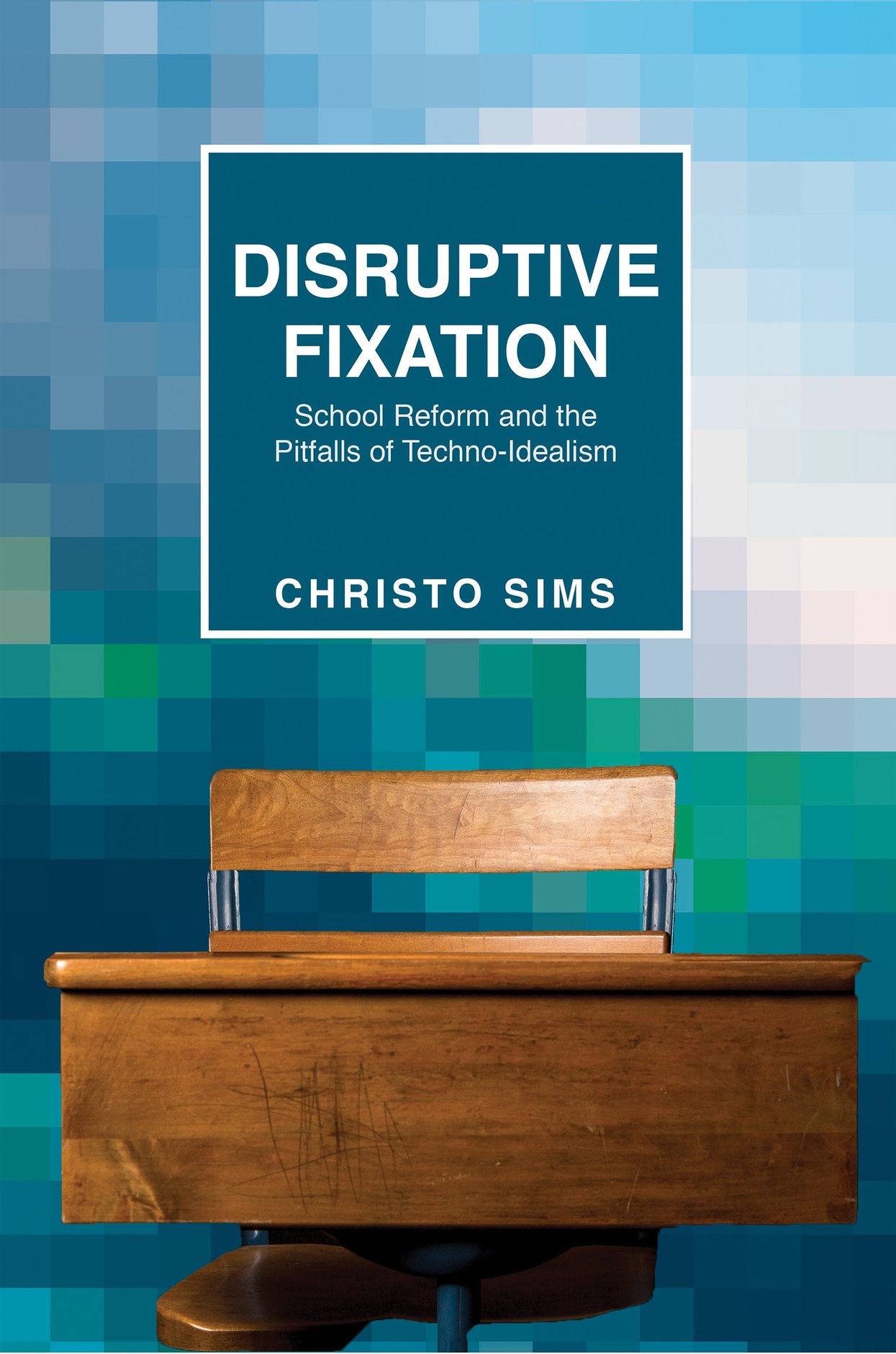Disruptive Fixations Reviewed in Anthro Book Forum

Disruptive Fixations, a book on techno-idealism by alum Christo Sims, was given a glowing review in the Anthropology Book Forum. The book focuses on how technology-focused philanthropy can impact educational reform, specifically focusing on the Downtown School in Manhattan. Sims argues that although technological interventions may be good-intentioned, those solutions don't bring magical quick fizes to deep-seated issues in the educational system. Juan M. del Nido, a research associate at the University of Cambridge, took these points to task in a review of Disruptive Fixations for the Anthropology Book Forum and was impressed with the book, calling it "sobering" and "sophisticated". Christo Sims graduated with a Master's in 2007 and a PhD in 2012, with a Designated Emphasis in New Media, from Berkeley's School of Information. He is now an Associate Professor of Communications at UC San Diego.
From the review:
“As if” dispositions also generated a rationale to protect utopianism from failures in the form of unsanctioned counterpractices, that is, new or unscripted practices that challenge or do not pay heed to this utopianism. When high academic achieving BIPOC students were effectively chased out of the school for not being disruptive in “the right ways,” a rhetoric of personal choice and of not being “a good fit” morally shielded the experience of innovative disruption, ironically touted as striving for social justice, from coming to terms with its own inequalities (153). Readers coming to this book from Ferguson’s tradition will recognize in this legerdemain a variation of the de-politicizing logics of technical intervention, working in this case by bleaching structural issues with a grammar of choice and individual responsibility. Sims spotted it too, and convincingly extended it to the school’s dealing with elite parents who described themselves as risk takers and unconventional but increasingly lobbied to run the school in the logics of a depoliticized “community” as they forced the curriculum and its pedagogy down increasingly conventional paths (143-145, 158). The point is that the project now had rationalities and affects to experience the failure, or at least inconsistency, of being openly taken over by neurotic, privileged parents, in a manner that did not threaten the promise of its success. This is how techno-idealism, as Sims calls it, outlives its blatant failures and inconsistencies: through immense work to repair it “live,” on the go, a kind of work that is emotional, performative, rhetorical, ritualized and fundamentally, even if in other guises, ideological (99).
To read the full review, click here!
